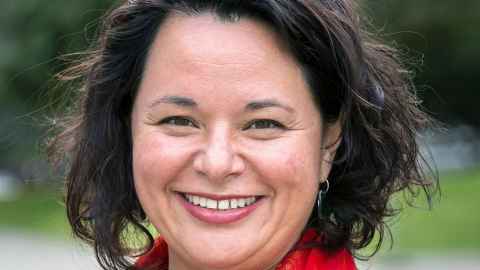Health inequities at large for rangatahi Māori
26 August 2022
Study finds rangatahi Māori face health inequities, and there are calls to indigenise the health system.

There has been little improvement in the health of young Māori despite the government’s best efforts over the past two decades, a new University of Auckland paper that looks at Indigenous adolescent health has found.
The study examined data over the past 20 years from the Youth2000 survey series, and found rangatahi Māori consistently have poorer health outcomes when compared to Pākehā youth.
The research also found a serious and concerning rapid decline in mental health among the group. The study has been published in The Lancet.
When researchers examined policies and programmes aiming to address youth health over this period, they concluded that reliance on universal Western approaches to healthcare had failed rangatahi Māori.
Adolescent well-being is profoundly shaped by the environments in which they live, grow, and learn. Exposure to poverty and ethnic discrimination were strongly associated with poorer access to healthcare and worse health outcomes.
“We keep doing the same things and getting the same results, and in some cases, inequity is increasing,” says Professor Terryann Clark from the School of Nursing, who is also the Cure Kids Chair in Adolescent Mental Health.
“We also examined where there had been improvements in health for rangatahi Māori – to learn from those successes.”
Strategies that narrowed health inequities for rangatahi Māori, had specific policies for rangatahi, Māori leadership, and were evidence-based, sustained, and comprehensive.
“What was really also important was the political will to address inequity," she says.
“Acknowledging that our health is systematically disadvantaging rangatahi Māori, is important – but the next steps will require radical transformation that places the rights, needs and preferences of Māori youth and their families at the core."
The study also found that policies that focused on mātauranga Māori (Māori knowledge) benefited rangatahi and even increased their desire to participate in school and extracurricular activities, as well as enhancing their connection to te ao Māori.
Professor Clark describes indigenising the health system as “a commitment to cultural safety, anti-racist praxis, Te Tiriti and recognising that rangatahi Māori have preferences that are not currently being met by the current health system”.
“The persistent privileging of Western knowledge and healthcare preferences only serves to widen inequity for rangatahi Māori and creates environments where institutionalised racism thrives.”
She says it's important to examine public health initiatives and policy changes in tandem with changes in health outcomes for rangatahi Māori.
Media queries
Te Rina Triponel, Kaitohutohu Pāpāho Māori
M: 021 029 90650
E: te.rina.triponel@auckland.ac.nz